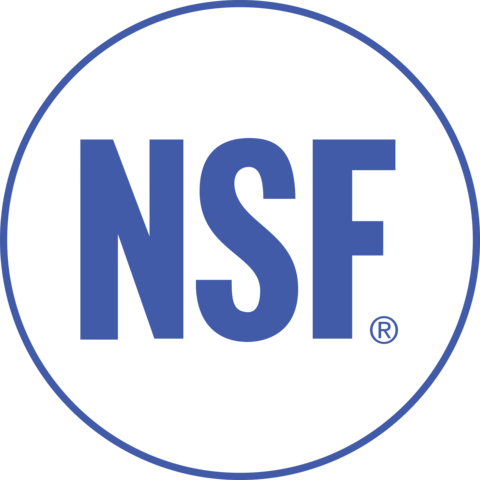NSF Becomes First ANAB-Accredited Certification Body for the SFI Urban and Community Forest Sustainability Standard
NSF Becomes First ANAB-Accredited Certification Body for the SFI Urban and Community Forest Sustainability Standard
With this achievement, NSF certifies its first client, Clemson University
ANN ARBOR, Mich.--(BUSINESS WIRE)--NSF-ISR (NSF), a leading global public health and safety organization, is pleased to announce that it has become the first ANSI National Accreditation Board (ANAB) accredited certification body for the SFI Urban and Community Forest Sustainability Standard. With this accreditation, NSF has certified its first client to the standard, Clemson University, a national public research university.
Launched by the Sustainable Forestry Initiative® (SFI), the standard provides a comprehensive framework for managing urban and community forests, addressing environmental, resiliency and economic challenges through nature-based solutions.
“We are honored to receive the first ANAB-accreditation for the SFI Urban and Community Forest Sustainability Standard,” states Tony Hardy, Director of Management Systems, NSF. “Accreditation to this standard is not only in line with our mission of improving human and planet health, but it ignites us to continue helping drive positive change. We are pleased to continue this work by certifying Clemson University as our first client to this standard, verifying their forest management leadership.”
The SFI Urban and Community Forest Sustainability Standard is the first of its kind, promoting sustainable management and enhancing the sustainability and resilience of urban and community forests.
“SFI created the Urban and Community Forest Sustainability Standard with partners because we saw a need to elevate the role trees and forests play in supporting human health and well-being, environmental and conservation leadership, climate and disaster resilience and urban forest improvement. We are excited to see NSF earn ANAB accreditation to provide third-party audits of the standard that, in turn, help organizations verify that their urban and community forests are managed to a high standard,” shared Kathy Abusow, President and CEO, SFI.
To receive official accreditation status, ANAB rigorously audited NSF to ensure it operates at the highest level of quality and service.
“Independent accreditation assures clients that the certificates issued to them are both credible and impartial,” states Tina Garner, Senior Director, Management Systems, ANAB. “NSF-ISR’s accreditation to the SFI Urban and Community Forest Sustainability Standard is a significant step in forestry management in providing organizations a market-recognized and accepted third-party certifier.”
The standard outlines requirements for entities that own, manage, or oversee urban and community forests. It is fitting for organizations wanting to improve their sustainability, including municipalities and local governments, non-governmental organizations, corporate campuses, educational or healthcare campuses, indigenous communities and other organizations.
Pat Layton, Director of the Clemson University Wood Utilization & Design Institute and forestry professor adds, “We are proud to earn NSF certification for the SFI Urban and Community Forest Sustainability Standard. Clemson has always recognized the importance of the natural landscape to the health and wellbeing of our university community and environmental sustainability. This certification is further demonstration of that commitment.”
This achievement underscores NSF’s dedication to providing credible and trusted certification services to help improve global sustainability.
For more information visit nsf.org. For media inquiries, contact Kara Nicolaides at media@nsf.org.
About NSF
NSF is an independent, global services organization dedicated to improving human and planet health for more than 80 years by developing public health standards and providing world-class testing, inspection, certification, advisory services and digital solutions to the food, nutrition, water, life sciences and consumer goods industries. NSF has 40,000 clients in 110 countries and is a World Health Organization (WHO) Collaborating Center on Food Safety, Water Quality and Medical Device Safety.
NSF offers comprehensive management systems certification to internationally accepted standards for quality assurance, safety, sustainability and environmental protection for a wide range of industries, including automotive, aerospace, food, health sciences, water and forestry. Our client-focused teams have deep industry expertise and are committed to supporting the journey to certification by adding value at every stage, helping to empower organizations to drive process and performance improvements for products, people and the planet.
About SFI
The Sustainable Forestry Initiative (SFI) advances sustainability through forest-focused collaboration. We are an independent, nonprofit organization that leverages four interconnected pillars of work: standards, conservation, community, and education. SFI works with the forest sector, conservation groups, academics, researchers, brand owners, resource professionals, landowners, educators, local communities, Indigenous Peoples, and governments. Collaborating with our network, we leverage SFI-certified forests and products as powerful tools to help solve sustainability challenges such as climate action, conservation of biodiversity, education of future generations, and sustainable economic development. Learn more at forests.org.
About ANAB
The ANSI National Accreditation Board (ANAB), a wholly owned subsidiary of the American National Standards Institute (ANSI), is the largest multi-disciplinary ISO/IEC 17011 accreditation body in North America, with comprehensive signatory status across the multilateral recognition arrangements of the International Accreditation Forum (IAF) and International Laboratory Accreditation Cooperation (ILAC). The ANAB accreditation portfolio includes management systems certification bodies, calibration and testing labs, product certification bodies, personnel credentialing organizations, forensic test and calibration service providers, inspection bodies, police crime units, greenhouse gas validation and verification bodies, reference material producers, and proficiency test providers. For more information, visit www.anab.org.
About Clemson University
One of the most productive public research universities in the nation, Clemson University enrolls 28,747 students across the State of South Carolina and has an endowment of over $1 billion. The University operates Extension offices in every county of the state and has five Innovation Campuses and six Research and Education Center locations. Classified as an R1 — Very High Research University by the Carnegie Classification of Institutions of Higher Education — Clemson is dedicated to teaching, research and service. Our main campus, located in Upstate South Carolina, sits on 1,400 acres in the foothills of the Blue Ridge Mountains, along the shores of Lake Hartwell.
Through the research, outreach and entrepreneurial projects led by our faculty and students, Clemson University is driving economic development and improving quality of life in South Carolina and beyond.
Contacts
Kara Nicolaides
media@nsf.org
